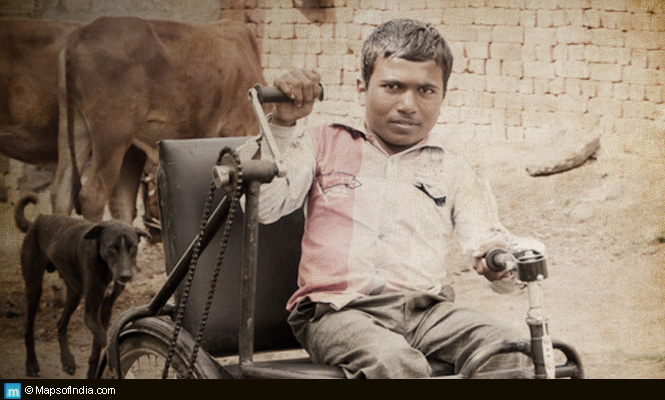Of all the physical disabilities, blindness is one of the most dreaded and tragic. Visually impaired people have unaccountable limitations. Take then the instance of a visually impaired child. Whatever a child absorbs as learning, is 80% through visual interaction. The more acute vision he has, the more is his absorbing power. So it is evident that most visually impaired children are deprived of proper education that would have helped them to lead a life with dignity in future. The sorry plight of the visually impaired is indescribable; most of them resort to a life of street begging, a life far below human dignity or total dependence for the rest of their lives. We are quite familiar with the term “visually functional”, the full implication of which is a person is non-functional without proper vision. The physically handicapped in our country are often referred to as the invisible minority. However, the visually impaired are the most vulnerable, because most of the times their pleas for help fall on deaf ears. The current statistics puts the figure of the visually impaired in India to 13 million and increasing.
Of the different states in India, Andhra Pradesh has 10,000 cases of visually impaired children below 10 years, of which only 0.2% can access the facilities of the special schools. Andhra Pradesh is one of the citadels of pursuing a career in engineering, with more than 700 engineering colleges. The irony is none of these colleges are equipped to cater the needs of the physically impaired. However, this scenario is going to change even if fractionally, by the bold enterprise undertaken by the NGO Devnar Foundation in Hyderabad founded in 1991 by the ophthalmologist Dr. Alamgir Saibaba Goud. Devnar Foundation has changed the life of hundreds of visually challenged students since 1992. The Devnar School for the Blind has been running an English medium primary school for the blind that offers an intermediate degree and in fact is the biggest blind school in the world. The Devnar Foundation has won numerous accreditations and a National Award for its noble ventures for the visually challenged. Some of the visually impaired emerging from this institution are extremely talented and, in fact, eight students from this institution have completed a Chartered Accountancy Course successfully and have gone to the U.S. to pursue higher studies.
The current noble enterprise envisaged by the Devnar Foundation is to establish a full fledged engineering college exclusively for the visually challenged in Hyderabad. The complete plans for the proposed college have been chalked out in minute detail. The Birla Institute of Technology and Science (BITS), Pilani, along with the Jawharlal Nehru Technical University, are extending their full cooperation to design the course ware in the form of 20 Braille interface software. A complete self sufficient library has been designed for the visually impaired children, where different textbooks and general knowledge books have been downloaded on CDs in MP3 format using indigenous software. However, the only stumbling block that is hampering the project to start rolling is the availability of a suitable space to set up the institute. Goud said, “We are ready with the syllabus. The government has responded positively to our request of about two to three acres of land. We also have donors to help and the faculty to teach”. A probable site for the institution has been identified in Mahindra Hills in Secundrabad. While eager visually challenged students wait to pursue further studies in this new Institute, Devnar Foundation waits for the green signal from the government as far as the land issue is concerned. The engineering college for the visually impaired is the first of its kind in the whole world and is already guaranteed affiliations from BITS, Pilani and Jawharlal Nehru Technical University. Blind students both from Andhra Pradesh and outside will get a chance of pursuing an engineering career in this institute but admissions will be strictly on a merit basis.
The tears of joy of hundreds of grateful parents of visually challenged children will obviously bless the efforts of the Devnar Foundation. My plea to the government is to enhance the project on a priority basis. My plea is also to the affluent and solvents of this country looking at the world from behind the tint of their Ray Bans, to make little contributions that can bring about a glimmer of hope in the perpetual darkness the visually impaired strive in. After all our duty does not end by just helping visually challenged persons to cross traffic-congested roads, does it?




